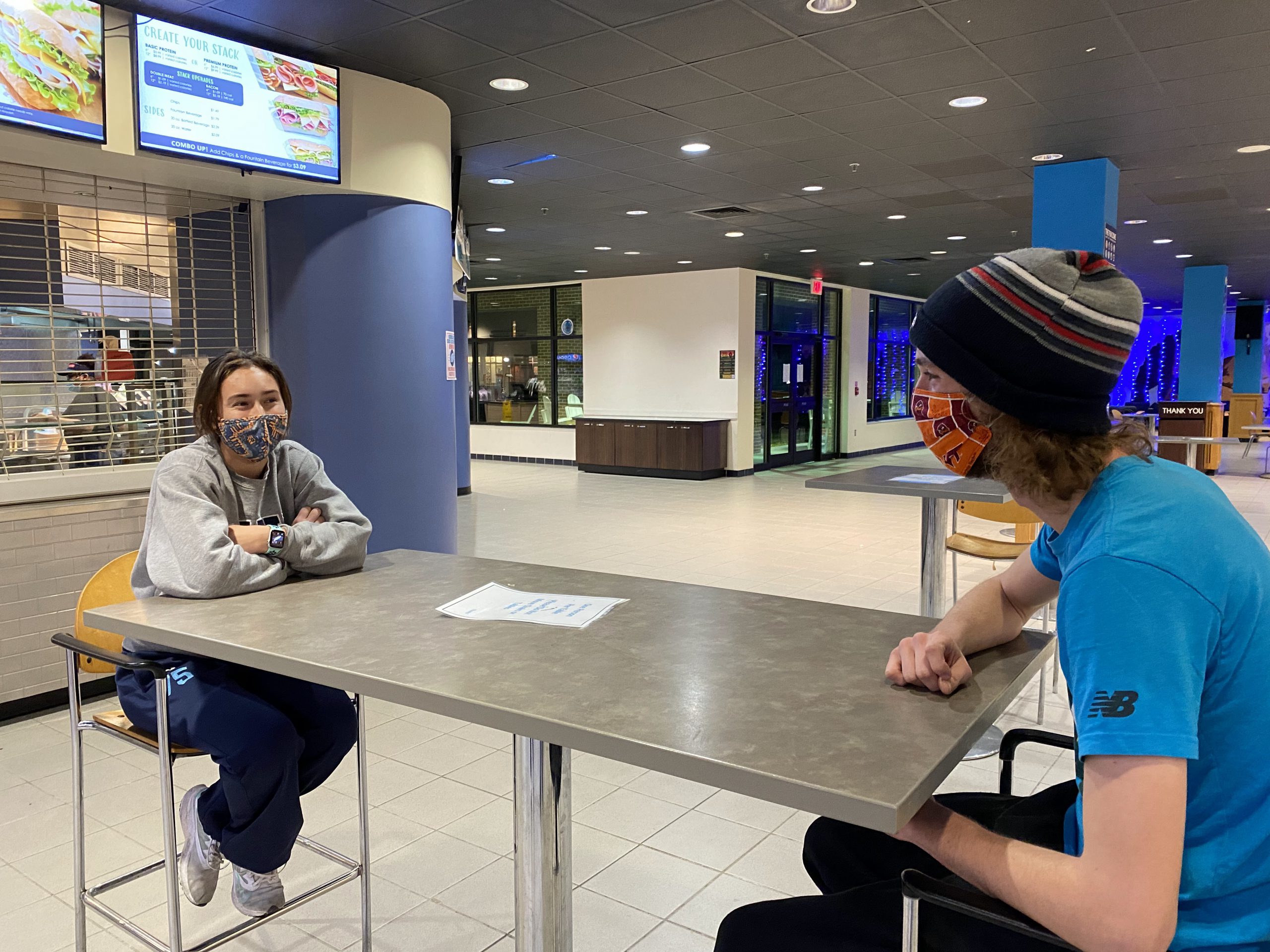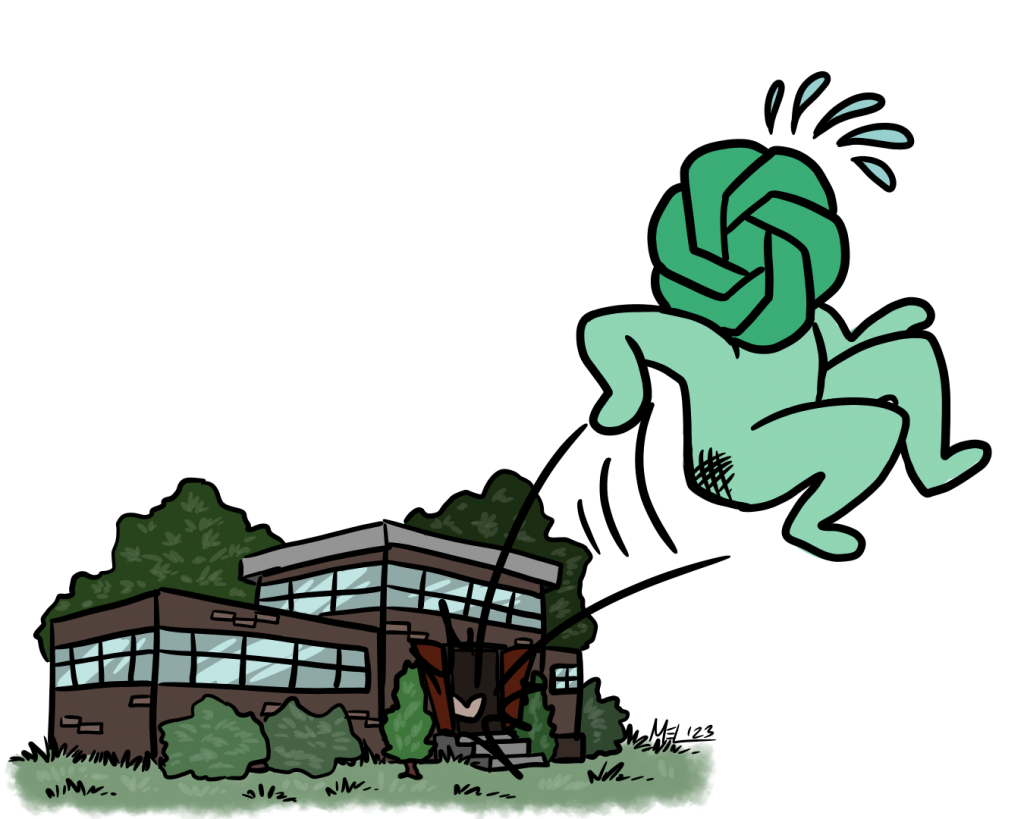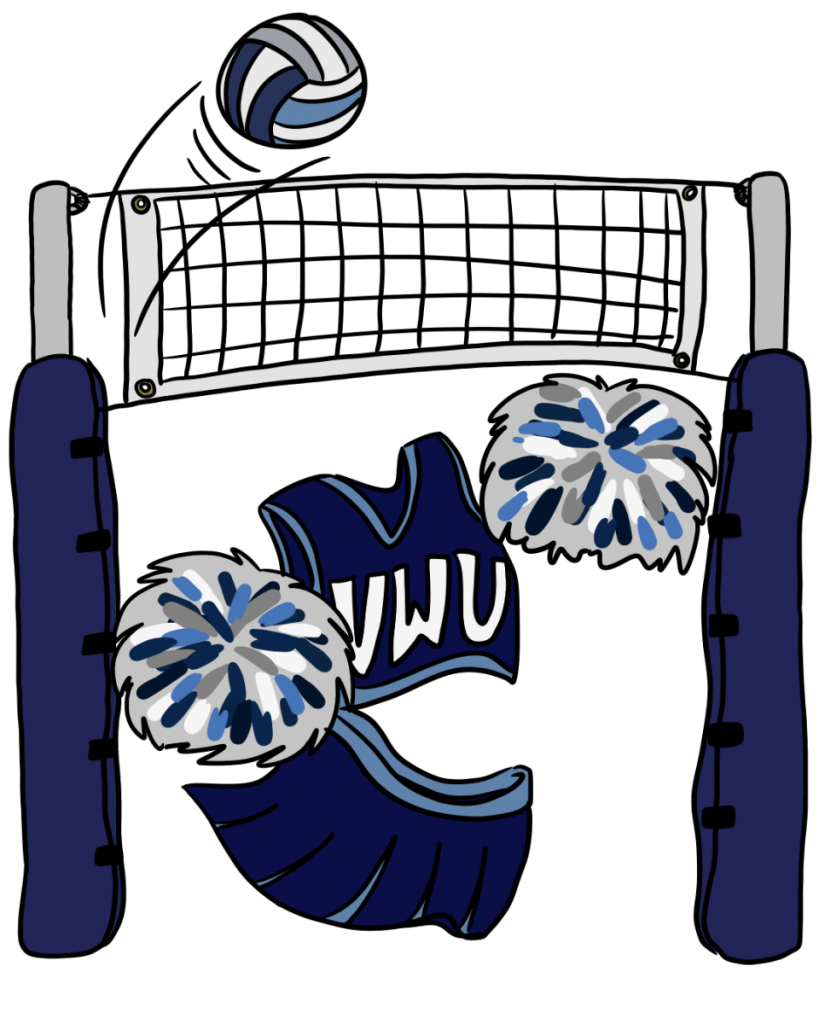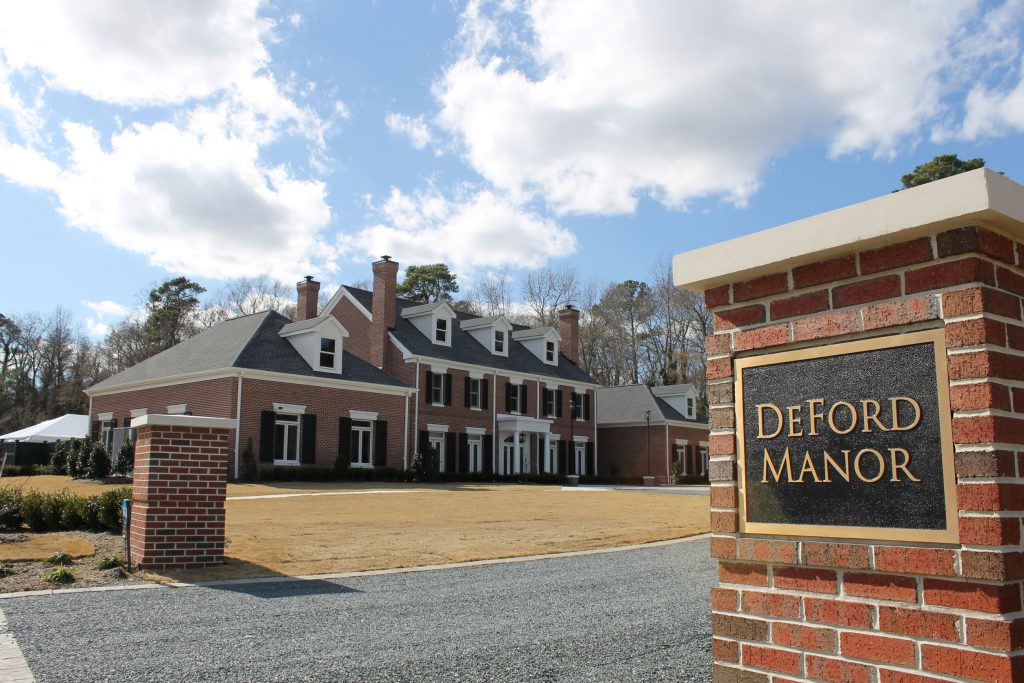After a successful fall semester with only a total of 14 positive COVID-19 cases, according to the COVID-19 dashboard on the VWU website, students entered the spring semester with stricter rules.
The university established returning protocols starting Jan. 2, which included no off-campus visitors, take-out dining options available at the Grille and Caf with only one person sitting at each table and no visitors in residents’ room. On Feb. 8, Residence Life announced that effective immediately, students are allowed to visit hallmates in the same residence hall only. Students must wear a mask when visiting other rooms.
Director of Student Health April Christman said students adjusted to a different J-Term schedule with special considerations this year. “It was just more condensed in that when students did have to enter COVID-19 protocol, we worked with Academic Affairs more closely…and then if their professor recommended, due to the absence, that they withdraw from the class, that was credited to a future J-Term,” Christman said.
Christman also credited the J-Term students with their willingness to adapt to the situation. “I would say that probably the most challenging part of J-Term was our ability to be closer to normal during the fall and have to so quickly go back to stricter restrictions … we wouldn’t have been able to do it without them,” Christman said.
Keith Moore, vice president of Campus and Operational Management, said Virginia Wesleyan reverted to rules similar to the 2020-2021 school year because they were successful. “It worked, that’s it. I mean I know it’s not the most favorable thing to do but we know that it’s the right thing,” Moore said.
These decisions were made even with the rising concern of the mental health challenges that are hitting young people hard as a result of isolation, anxiety and depression because of the pandemic. This has been emphasized by the U.S. Surgeon General Vivek Murthy who released an advisory about protecting youth mental health.
“Since the pandemic began, rates of psychological distress among young people, including symptoms of anxiety, depression, and other mental health disorders, have increased,” Murthy said. “Recent research covering 80,000 youth globally found that depressive and anxiety symptoms doubled during the pandemic, with 25% of youth experiencing depressive symptoms and 20% experiencing anxiety symptoms.”
On Jan. 3, Virginia Wesleyan President Scott Miller announced via email that all students, faculty and staff would be required to receive the booster shot for COVID-19 by Feb. 28. Christman explained the idea for the booster requirement shot. “It reduces the burden and impact on students’ academics, but also athletics. We want it to be as safe as possible for you all,” Christman said.
On Jan. 15, Virginia Gov. Glenn Youngkin signed executive orders which included prohibiting state-funded universities from requiring vaccines for students, faculty and staff. Following the announcement, schools such as James Madison University, Virginia Tech and George Mason University announced that COVID-19 vaccines would not be required, only recommended.
Earlier in January, JMU announced that masks were still required indoors. GMU still requires masks and continues to do surveillance testing. Students at GMU receive emails when it’s their time to get tested. At the end of January, Virginia Tech announced that students, faculty and staff will be required to wear masks indoors regardless of vaccination status, but masks outside are not required.
In the Hampton Roads area, Old Dominion University announced earlier this week that they are no longer requiring students to be fully vaccinated, but it is strongly encouraged, including the booster. ODU also said that it no longer requires unvaccinated students to partake in weekly testing. The university is still requiring masks to be worn indoors at all times. Similarly, Norfolk State University is not requiring the vaccine but is encouraging students to receive it.

Emily Uzzle | Marlin Chronicle
When students at Virginia Wesleyan were asked about their opinions about going back to the old rules and the booster requirement, there were mixed emotions. Sophomore student Danielle Perry said, “I got the booster before it was required. I would prefer the rules from last semester because this is isolation and not good for our mental health, which was made very evident last year,” she said. “I see the point in the restrictions. I get the masks, but the new restrictions do nothing when we can hangout off campus and sending us home for a weekend is not going to do anything.”
Sophomore student Britni Arrington said, “I hate the new rules, I don’t care about the vaccine or mask rules, that doesn’t bother me, I just want to be able to hang out with my friends whenever I want wherever I want.”
Current junior and former RA for the university Lanae Sterret is taking a gap semester. “I understand the restrictions and I got the booster regardless, but I don’t think the restrictions are worth it if the schools aren’t going to actually enforce it and hold students accountable,” Sterret said.
VWU students who think they have been exposed to COVID-19 or think they have COVID-19 are recommended to either email covidsafe@vwu.edu or fill out the questionnaire on the LiveSafe app. For more information on campus COVID-19 numbers, check the university website.
By Colette Kearney
cmkearney@vwu.edu



